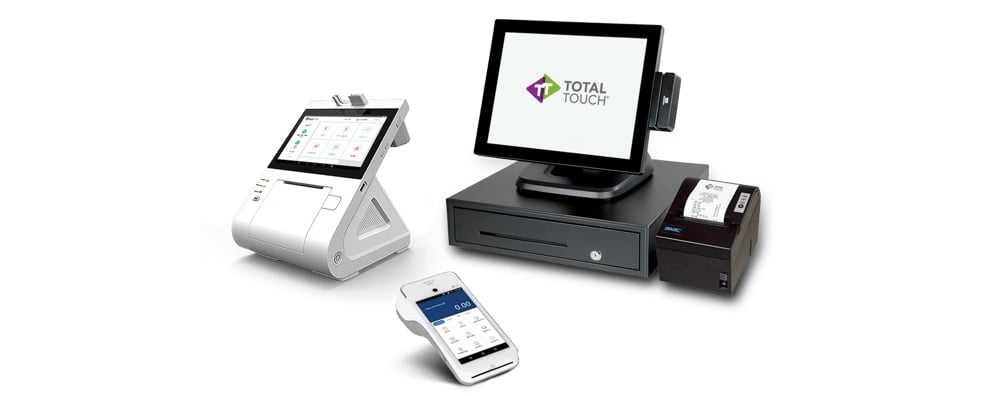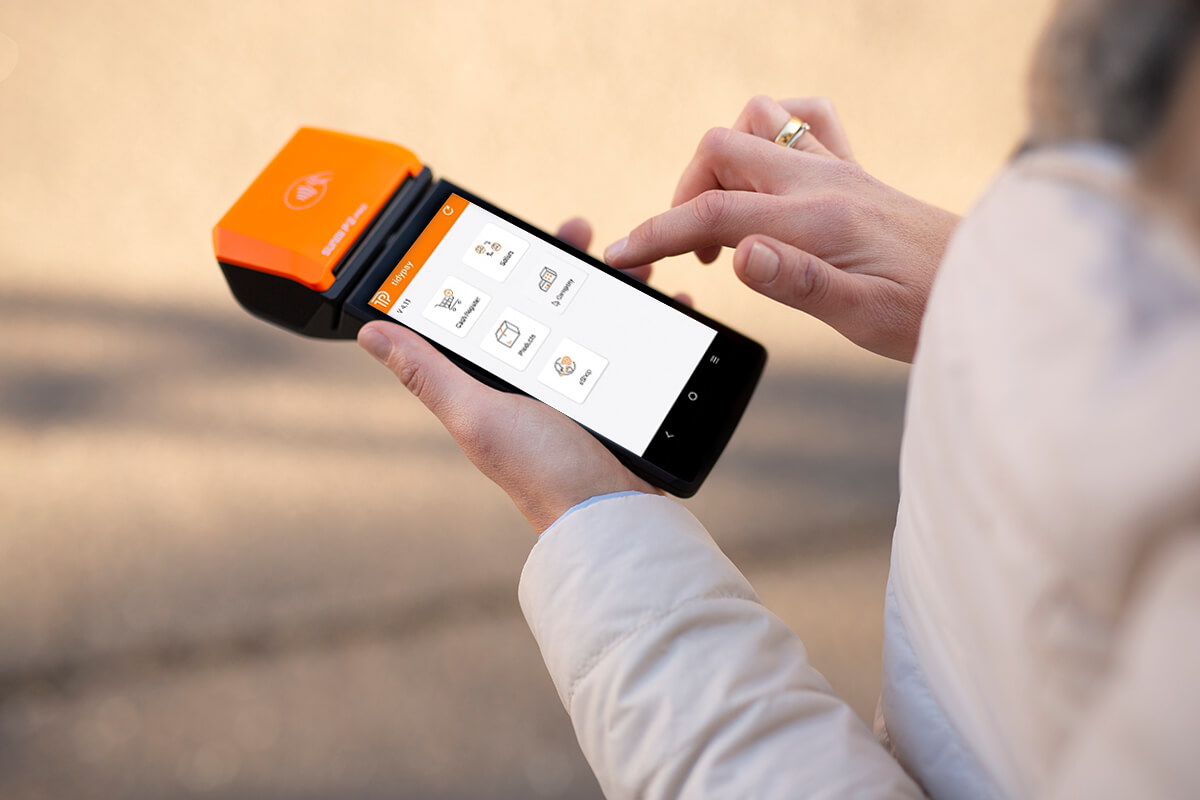The Best Strategy To Use For Pos
The Best Strategy To Use For Pos
Blog Article
Excitement About Point Of Sale Software

Pos System for Small Business: Retail Point-Of-Sale Solutions Streamline Transactions
Not known Details About Point Of Sale Systems

Hardware Elements of a Point of Sale System What makes a POS system tick? It's not just software application; the hardware plays a starring function. Believe of it as the body to the software's brain. Without the ideal hardware, even the most sophisticated POS software is just a quite face. Essential POS Hardware So, what are the must-haves? Let's break it down. The central processing unit, frequently a computer system or tablet, is the heart of the operation. The display or touchscreen show enables staff to interact with the system. A barcode scanner accelerate the checkout procedure. Keep in mind the days of by hand getting in each code? The trusty invoice printer supplies clients with a record of their purchase. A cash drawer keeps your cash safe and organized. A card reader enables consumers to pay with credit or debit cards. Diving Deeper: Beyond the Basics However wait, there's more! Depending on your organization, you might require customized hardware. A restaurant may include kitchen printers to relay orders, while a retail store might utilize label printers for product tagging. Ever wonder how your regional bakeshop instantly prints those delicious-looking labels? Selecting the Right Hardware: A Balancing Act Picking the ideal hardware isn't practically purchasing the most pricey devices. It has to do with discovering the sweet spot in between functionality, resilience, and budget. A small company simply beginning out might choose a more fundamental setup, while a high-volume merchant will require robust, high-performance makers. Is it much better to purchase brand-new or utilized? Consider your options check here thoroughly. A brand-new system offers the current technology and service warranty security, but a refurbished system can conserve you money. The Future of POS Hardware What does the future hold? Anticipate to see even more combination with mobile gadgets, biometric scanners for staff member authentication, and advanced analytics dashboards showed on larger, clearer screens. Imagine a world where stock is immediately upgraded in real-time as items are scanned-- a world where you can track your best-selling product from anywhere in the world. The possibilities are endless, and the hardware is continuously evolving to meet the demands these days's services. Are you ready to update your point of sale system?
Software Features and Capabilities: The Heart of Your POS System
Ever see an experienced barista glide through a hectic early morning rush? Their secret isn't simply caffeine; it's a seamless dance with their POS system. The software application is the conductor of your business symphony, managing whatever from sales to stock. But what notes should you be listening for? What capabilities genuinely matter in today's market?
Stock Management: Beyond Counting Beans
Forget spreadsheets that haunt your dreams. Modern POS systems offer real-time stock tracking, notifying you when your stock of artisanal coffee beans dips precariously low. Believe of it as a digital guardian angel, avoiding those uncomfortable "Sorry, we're out!" moments to consumers. What if you could also anticipate demand based on historical data? Lots of systems now use forecasting tools, an effective weapon versus overstocking and lost sales. This assists avoid the situation of running out of popular items or accumulating excess inventory of slow-moving items, both of which can constrain cash circulation and space.
Sales Reporting and Analytics: Translating the Data
Sales data is the new gold, and your POS system is the miner. Forget feeling in one's bones just how much you sold today. Dive deep into the information to uncover trends, identify your best-selling products, and understand client behavior. Which menu product sets completely with the everyday special? Which promotion resonated most with your clients? These insights are not simply intriguing; they're actionable intelligence. Without dependable sales reporting, navigating the complexities of company decision-making ends up being like sailing without a compass, increasing the possibility of bad moves and missed chances.
Customer Relationship Management (CRM): Building Bridges, Not Walls
Keeping in mind a routine consumer's name and preferred order is captivating, however scaling that individual touch is challenging. POS systems with CRM capabilities permit you to track client purchase history, choices, and even birthdays. Picture automatically providing a discount rate on their birthday-- a small gesture that fosters commitment and encourages repeat service. There is the potential snag of bad information quality, which can lead to inaccurate consumer profiles and inadequate marketing efforts.
Payment Processing: Streamlining the Transaction
The checkout experience can make or break a sale. Seamless combination with numerous payment techniques-- credit cards, mobile wallets, even copyright-- is non-negotiable. Can your system deal with split payments? Does it provide protected tokenization to protect consumer data? A cumbersome payment process is like striking a sour note in your service symphony, possibly interfering with the whole efficiency. Making sure compatibility with progressing payment technologies and adherence to security standards are critical for preserving client trust and operational effectiveness.
Staff Member Management: Keeping the Group in Sync
From clocking in and out to managing permissions and tracking performance, worker management includes improve operations and improve responsibility. Is scheduling a headache? Numerous POS systems use incorporated scheduling tools, optimizing staffing levels based on predicted need. A typical barrier that is frequently neglected is the challenge of incorporating worker management functionalities with payroll systems, which can lead to mistakes and inadequacies in wage estimations.
Advanced Characteristics: Leveling Up Your Operations
- Table Management: Perfect for restaurants, this feature allows you to visualize your dining-room, track table status, and handle reservations.
- Loyalty Programs: Reward your best consumers and motivate repeat company with integrated commitment programs.
- Online Buying Integration: Effortlessly integrate your POS system with online ordering platforms to broaden your reach.
Picking the right POS system has to do with more than just functionality; it's about finding a partner that can grow with your business. Consider your existing needs, expect future growth, and don't hesitate to ask the tough concerns. The ideal software application can transform your company from a chaotic cacophony into a harmonious masterpiece.
Industry-Specific POS System Applications
Think about the local pastry shop, bustling with early morning consumers yearning fresh croissants. A generic POS system might manage deals, however can it handle intricate recipes, track component inventory, or instantly adjust production schedules based upon sales data? Most likely not. That is where the charm of industry-specific POS systems shines.
Dining establishments and Hospitality
For busy dining establishments, speed and precision are paramount. The number of times have you seen servers juggling orders, adjustments, and splitting expenses, all while attempting to supply exceptional service? A dining establishment POS system enhances these procedures, enabling for table management, kitchen order tickets, and even online buying integration. These systems typically consist of features like ingredient-level inventory tracking, crucial for managing food expenses and reducing waste. Ever question why your favorite meal is in some cases unavailable? It might stem from an absence of correct inventory management.
- Table Management
- Kitchen Order Tickets
- Online Purchasing Integration
- Ingredient-Level Stock Tracking
Retail Solutions
Retail, with its diverse inventory and consumer interactions, requires a various set of tools. Picture a store clothes shop struggling to track sizes, colors, and seasonal collections utilizing a fundamental checkout system. An industry-specific retail POS system provides features like barcode scanning, consumer commitment programs, and in-depth sales reporting. These systems can even integrate with e-commerce platforms, offering a seamless omnichannel experience for clients. Did you understand some retail POS systems can predict future sales trends based upon historical data? Now that is powerful!
The Perils of a Mismatch
Choosing the wrong POS system can develop substantial operational hurdles. A clothes shop utilizing a restaurant POS, for instance, would discover it inappropriate for managing inventory with sizes and colors. The lack of proper reporting and analytics could lead to misinformed acquiring choices and lost earnings. The outcome might be similar to trying to fit a square peg in a round hole.
Key Factors to consider
Picking an industry-specific POS system requires mindful assessment. Consider your business's special requirements and functional workflows. Does the system incorporate with existing software? Does it use the essential reporting abilities? Is it scalable to accommodate future growth? A well-chosen POS system is not simply a deal tool; it's a strategic asset that can drive efficiency, improve consumer fulfillment, and eventually, improve your bottom line. Remember, it is a financial investment in your business's future, not simply a cost.
Security Considerations for Point of Sale Systems
Ever heard the tale of the mom-and-pop store that lost whatever because of a single, ignored security flaw in their POS system!.?. !? It's a cautionary tale, and it highlights a crucial aspect often overshadowed by the allure of elegant features and structured operations. The reality is, a POS system is only as good as its security. What good is a system that crunches numbers in a flash if it permits lawbreakers to swipe customer's information simply as rapidly?
The Vulnerability Minefield
The digital landscape is a battlefield. Every POS system, regardless of size or elegance, is a prospective target. Are you genuinely prepared for the hazards lurking around the corner? The genuine pinch comes when you find that your outdated software has an open hole that hackers can exploit, turning your service into an unwitting accomplice in identity theft. The trouble is that hackers are crafty and are constantly altering their methods.
Common Security Gaps and Specialist Tips
- Weak Passwords: "Password123" isn't cutting it. Usage strong, unique passwords for all POS system accounts and change them regularly. Two-factor authentication is a must.
- Unsecured Networks: Your Wi-Fi resembles leaving the front door open. Protect your network with strong encryption (WPA3 if possible) and consider a separate network for your POS system.
- Out-of-date Software Application: Software application suppliers spot security holes all the time. Stopping working to update resembles welcoming difficulty. Establish automatic updates or schedule routine upkeep.
- Staff member Training: Your personnel is your very first line of defense. Train them to recognize phishing attempts, secure passwords, and report suspicious activity.
Information File Encryption: Your Guard Against the Dark Arts
Think of data file encryption as a secret code. It scrambles sensitive details, like charge card numbers, making it unreadable to unapproved users. Without file encryption, your clients' monetary information resemble sitting ducks, ripe for the picking by cybercriminals. It's not simply about securing your customers; it's about securing your credibility and avoiding large fines.
PCI Compliance: The Rulebook You Can't Neglect
If you accept charge card, you're bound by the Payment Card Market Data Security Standard (PCI DSS) It's a set of security standards created to safeguard cardholder data. Failing to comply can lead to fines, charges, and even the loss of your capability to process credit card payments. It's a headache, yes, however it's an essential one. Think about PCI compliance as the expense of doing company in the digital age.
Consider this: every transaction processed through your point of sale is a possible entry point for malicious stars. By implementing robust security procedures, you're not just protecting your organization; you're protecting your clients' trust and ensuring the long-lasting practicality of your operations. The security of your POS system isn't just a technical issue; it's a business important. It requires continuous alertness, proactive procedures, and a dedication to staying ahead of the curve.